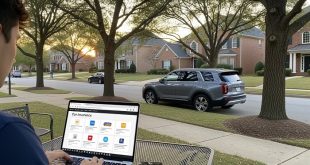Most of us experience an occasional financial crisis when cash flow is inadequate to meet an imminent need. Without an available savings account or investment funds, people often resort to taking out a loan. Unless they decide to apply for a cash advance or another form of unsecured financing, using property as collateral will be necessary. Providing a car or a home as leverage in personal finance is not always a great idea. In addition to supporting the lack of savings for events of this type, a secured personal loan can turn out badly if expected income does not materialize, and the collateral property is claimed by the lender.

Car Equity Loans
Personal loans of any significant amount are generally required to be secured by personal property of similar or higher value. For example, a loan of $10,000 to pay for foundation repair might be secured by the equity in a late model vehicle, like a Lexus or other high-end model. The borrower agrees to this type of loan assuming that he or she will not default, and the vehicle will not be at risk for collection. However, if something goes wrong, as in the borrower losing a job or becoming unable to work, the loan will go unpaid, and the car may be seized for payment as agreed in the loan contract.
Home Loans
The same is true for home loans. Although mortgage loans are common, and it is not rare for someone to miss payments and possibly have the home repossessed, it is important to maintain good credit by staying current with monthly payments and to ensure regular income remains stable and reliable. Otherwise, home loan risks can become manifest, and the home may then become the lender’s property.
In addition, as equity in the property builds, some homeowners set up a home equity line of credit that uses the house as security. The amount of available cash depends on the amount of equity in the property. Credit lines are often established for up to sixty or eighty percent of the property’s equity value, or sometimes more. If the borrower falls behind in payments or loses the needed income to meet monthly payments, the property can be claimed by the lender to cover the cost of unpaid debt.
Using personal property as security in a personal loan can be risky, although it is a fairly common practice. Some borrowers take out a loan insurance policy to cover the remaining balance if they become unable to make payments for any reason. However, it is usually safer in the long run to establish an emergency savings account to cover unexpected financial needs without using personal property as loan security.
If personal property like a vehicle or a home is used to secure a loan, experts recommend taking out a loan on manageable terms. Low, affordable payments at a reasonable interest rate and flexible repayment options should be the goal, if possible. Losing a car or a home for failing to keep up with personal loan payments often puts the borrower even further behind financially. Now the person will have to find ways of replacing the vehicle or the real estate property that served as loan security, which increases pressure and may lead to added debt. Personal loans should be carefully considered and used only when truly necessary.
 Entrepreneur Resources Your source for small business information
Entrepreneur Resources Your source for small business information




